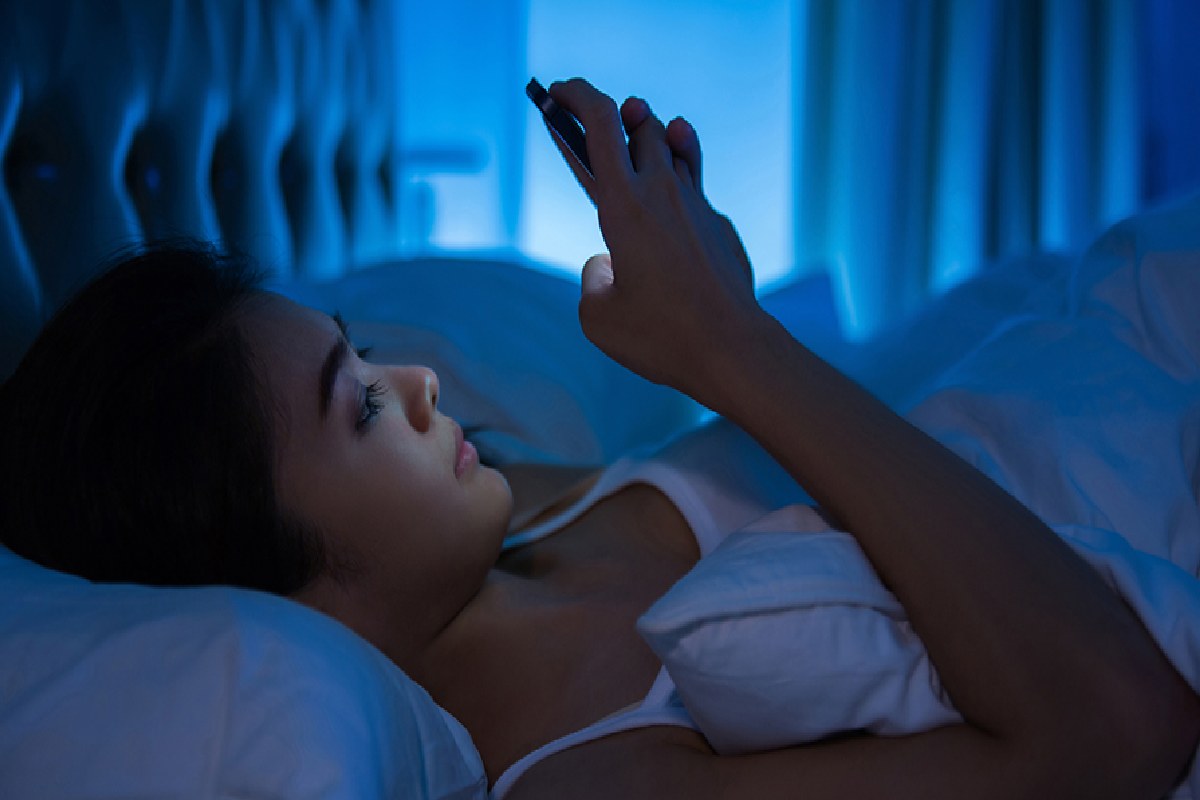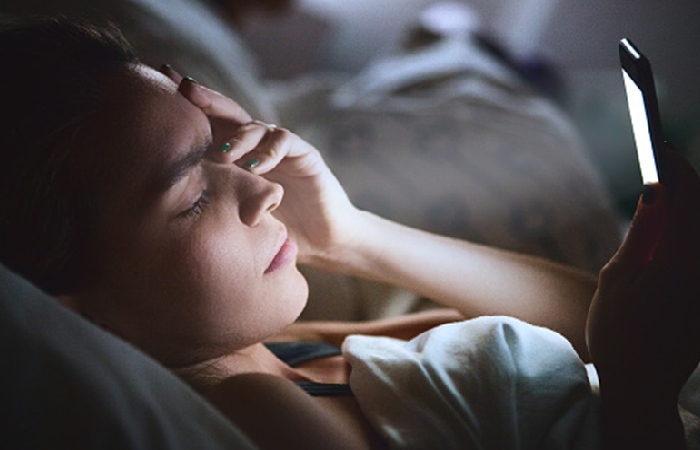How Can Electronics Affect Your Sleep?

A recent study found a relationship between touch screen use and fewer hours of sleep at night. In addition, it showed that electronic media use was associated with a longer delay between the time you go to bed and the time you fall asleep. The researchers looked at over 2000 older children’s sleeping habits and the number of electronic devices in their bedrooms. Both smaller and larger devices were independently associated with a decreased number of hours of sleep.
The effect of blue light on sleep was found to be the strongest when teenagers used a tablet computer at night. They tended to sleep much later than their peers, with the exception of children who were not using an electronic device at all. However, the study did not prove that blue light has a definite negative effect on sleep. The researchers did note that prolonged use of electronic devices before bedtime may result in a delayed sleep onset.
Another study found a link between electronic use and sleep quality. While the study did not specifically identify a cause of poor sleep, it showed a correlation between the time you spend using an electronic device and the number of hours you sleep. Those who were exposed to electronics before bedtime had less restful sleep and woke up feeling more fatigued than those who did not. The researchers also noted that the presence of light in the bedroom caused people to awaken sooner in the morning. Also a proper size mattress like the king size or the California king size can also help you get proper sleep. The dimensions of these mattresses are 6.33’ X 6.67’ X 0.92’ vz 6.33’ X 7’ X 0.92’.
State How Can Electronics Affect Your Peaceful Sleep

- The light that we see on our screens can disrupt the production of melatonin, a hormone essential to a good night’s sleep. This is true of all wavelengths, but blue light is particularly bad. This light is often used in factories to keep employees awake, but it’s also harmful for our sleep. Even one hour of exposure to a bright screen can delay the body’s natural clock by 1.5 hours. This can interfere with your schedule and make it hard to get to sleep at night.
- Research suggests that using electronic devices before bed can reduce the amount of time spent in deep sleep. According to the National Sleep Foundation, the use of cell phones and computers before bed can interfere with the natural rhythm of the sleep cycle. Similarly, research shows that teenagers and young adults are more likely to bring their cell phones and tablets to bed. Sixty percent of children admitted to using their desktop or laptop computers within an hour of going to sleep.
- Despite this evidence, it’s important to remember that all electronics emit light. This includes power adapters and LED lights on televisions. While these light sources may be small, they still affect the quality of sleep. The effects of these devices on the sleep cycle are most noticeable in children, which are more sensitive to the effects of artificial light than adults. But research needs to be done to determine the effect of multiple devices in the bedroom on a child’s sleep.
- Studies have shown that the use of electronic devices before bed has negative effects on the sleep cycle. This means that the late-night hours spent in front of the television or laptop can result in a nightmarish state. This is especially true if the device is a cell phone. The blue light from the display is absorbed by the retina of the eyes. As a result, it’s not surprising that late-night screen time is linked to delayed sleep.
- The way we use electronics before bed has a strong impact on sleep. Some studies have found that people who use their electronic devices before bedtime have a harder time falling asleep. For instance, many late-night emailers report waking up to check their email. Likewise, six in 10 respondents reported that they used a desktop or laptop computer within an hour of going to bed. While some of these findings seem to be alarming, they have the potential to improve sleep.
- Some studies have shown that late-night screen time can affect sleep. This is a problem for adults and children alike. The increased use of electronic devices is a major cause of insomnia. While people who sleep soundly can still wake up in the middle of the night, this is a major distraction for children. It affects their brains and leads to a lack of quality rest. However, it is important to note that there is a correlation between the age of a person and the amount of time they spend on their electronic devices.
There are several ways to prevent blue light from interrupting sleep. First, turn off the lights in your bedroom, but be sure to avoid using your electronic devices 30 minutes before bedtime. The National Sleep Foundation recommends that people limit their electronic use to an hour before bedtime. Most of us can arrange our schedules to accommodate this, but limiting technology before bed can be difficult for some. When it comes to sleep, it is imperative to avoid screens before bedtime. Moreover, it is important to stay away from texting and reading before bed. Also, try sleeping in perfect size mattresses like the full or queen size to get better sleep. The dimensions of these mattresses are 9′ × 9.6′ vz 10′ × 10′.
Conclusion
Using electronic devices before bed is not just a matter of preference; it is a concern for everyone. But it’s not just young adults who are susceptible to the effects of blue light. As adults, we are also susceptible to the effects of artificial light. This is true for young children, especially when they are trying to fall asleep. Among young adults, the number of children who bring their cell phones before bed is more than double than teens and young adults who are trying to get a good night’s sleep are the most affected.
